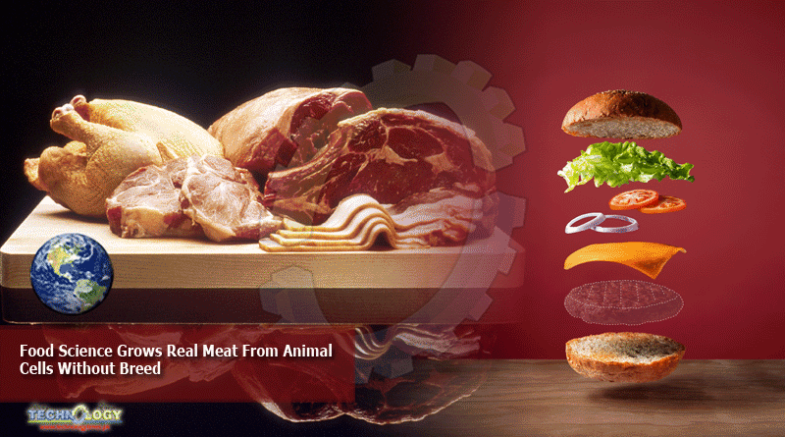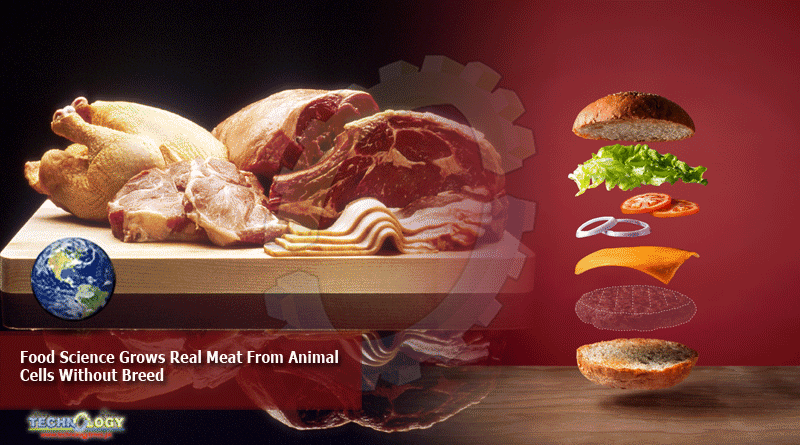A Food Science That Grows Real Meat From Animal Cells Without The Need To Breed, Raise And Slaughter Animals.

Meat The Future, A Film From The Documentary Channel, Tells An Exclusive Story About An Enormous New Idea That Offers Hope To The World. It is about the pioneers behind the birth of the “cell-based meat” industry: I chronicled this story over three and a half years, between 2016 and 2019.
As a filmmaker, I want to make a difference
Prior to making feature-length documentaries, I spent a decade traveling the globe making films for broadcasters and for non-governmental organizations about some of the most pressing social justice issues of our time. I filmed in war zones, in sweatshops and across sub-Saharan Africa bearing witness to the HIV/AIDS pandemic. I felt the weight of responsibility in filming people’s real stories with intimate access, and I felt despair and helplessness when I considered the magnitude of social and economic injustice. I realized that our planet — the one home that unites us all — was in peril and that, as a privileged Canadian filmmaker, I could make a difference.
My first feature documentary, Water on the Table (2010), was about the fight to protect water against the levers of privatization. It led me to make my 2013 animal rights film, The Ghosts in Our Machine, which focused on the invisibility of billions of animals that are exploited for food, fashion, entertainment and biomedical research. Ghosts was seen by hundreds of thousands of viewers across the globe, on every continent, and continues to be used as a consciousness-raising tool, gently removing people’s blinders to this complex moral issue.
Finding new solutions to big problems
Through my work, my eyes were opened fully to the need for transformation, so I wanted my next feature documentary to be laser-focused on a big, viable solution. In 2016, a light bulb went off when I came across the novel and commercial development of cell-based meat, also referred to as “clean meat,” “cultivated meat” and “cultured meat.”
I was certain about making Meat the Future after meeting Dr. Uma Valeti, a Mayo Clinic–trained cardiologist and the visionary CEO and co-founder of Memphis Meats, the world’s first Animal Cells -based meat company. “This has been something that I’ve been dreaming about since I was a kid, thinking about the impact on human lives and animal lives, and the ills of food production,” says Valeti in the film.
Securing unique access to Valeti and his team of scientists and researchers, as well as to Bruce Friedrich, the co-founder and executive director of The Good Food Institute — a non-profit dedicated to the acceleration of the clean and plant-based meat industries — provided my team with a privileged, behind-the-scenes look at the industries’ struggles and victories.
We filmed history unfold as Memphis Meats innovated texture and taste, and as Valeti rose in prominence as a pioneering CEO, securing historic investment from the meat industry and billionaire influencers. We also filmed the development of the American food regulatory story out of Washington, D.C., documenting historic public meetings between ranchers and farmers from the midwest and Animal Cells -based meat startups from the San Francisco Bay Area at the United States Department of Agriculture.
Conventional animal agriculture is not sustainable
Food trends come and go, but meat has been a staple of human civilization for millennia. The Food and Agricultural Organization (FAO) of the United Nations notes that worldwide meat production is projected to double by 2050. According to the UN’s Department of Economic and Social Affairs, the world’s population is expected to expand to 9.8 billion by that time.
Since the post-war era, suppliers have innovated production to be more efficient, allowing them to produce meat faster, at larger scale and with greater output. But this has been at the expense of the billions of animals that suffer under cruel conditions, enduring repetitive breeding and gestation, the physical impacts of growth hormones, confinement, long transport and slaughter. Kill-floor workers suffer psychological and physical stress, too, so it’s not an ideal situation for people either.
Animal agriculture also takes up roughly 45 per cent of the global land surface area, and research shows its direct impact on climate change: by 2013, the FAO noted, 14.5 per cent of human-induced global greenhouse gas emissions could be attributed to the livestock sector.
A game-changing alternative
According to research published by the Good Food Institute, when compared to conventional beef at scale, Animal Cells-based beef has the potential to reduce land use by more than 95 per cent, climate change emissions by 74 to 87 per cent, and nutrient pollution (a type of water pollution) by 94 per cent.
It is life changing, deeply fulfilling and often exhausting to make feature documentaries. I am reflective about our human evolution. We need solutions, urgently — transformation for people, for animals and for our planet. We do not know when cultivated meat will be in grocery stores, available at scale, but its journey into the world and revolutionary promise — as featured in Meat the Future — is a story that I hope opens hearts and minds to what is possible.
This news was originally published at cbc.ca
